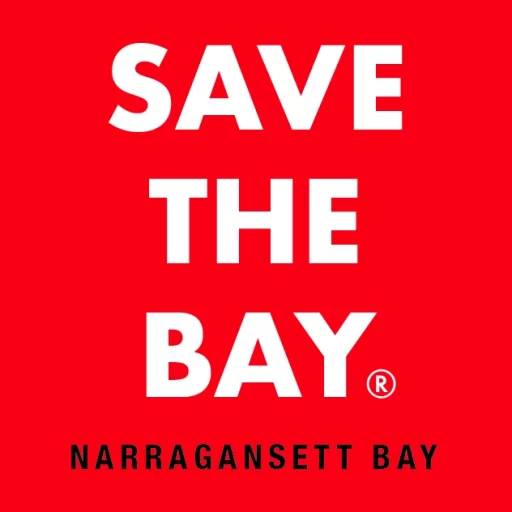50 Ways We’ve Saved The Bay: Putting a Stop to that Big Parking Lot
by Chris Cassaday, communications intern
Save The Bay’s mission is to protect and improve Narragansett Bay. When new industrial developments surface that may upset the delicate balance of the Bay, we take swift action to prevent potential disasters. After the Quonset Air Naval Station closed in 1974, Rhode Island established the R.I. Port Authority and Economic Development Corporation (RIEDC) to lead economic redevelopment of the old naval base. RIEDC’s plan initially envisioned Quonset Point as a global “load-center”containerport that would accommodate the largest of ocean-going vessels. The Draft Master Plan began to circulate in 1997, and Save The Bay caught wind of the impending disaster that could unfold if Quonset’s “megaport” became a reality.

Redevelopment of the port required blasting through bedrock to carve a 52-foot trench into the West Passage, followed by the dredging of 20 million cubic yards of sediment. A fraction of the spoils of this dredge would fill in 500 acres—roughly 380 football fields—of the Bay to create new land for pavement. The remaining 19.2 million cubic yards—12,000 acres—of dredge spoils would have to be dumped elsewhere across Rhode Island. After construction, the megaport would have presented considerable risks, including the introduction of exotic, invasive species from ballast water, and port sprawl into South County. The waters immediately off of Quonset, which are used for shellfishing and boating, would be lost.
“As long as it takes, Save The Bay will challenge the wisdom of building a megaport on Narragansett Bay” said Curt Spalding, Save The Bay’s executive director at the time. We notified the R.I. Department of Environmental Management and U.S. Environmental Protection Agency, alerting both agencies to “RIEDC’s intention to seek a downgrade of water quality classifications in the Bay to accommodate the proposed large-scale seaport development.” We wrote to RIEDC’s Director John Swen concerning the environmental impact and urged that a stakeholder process guide the state of Rhode Island in making decisions about the port. We held our own public meeting in North Kingstown in spring 1999, engaging an inside attendance of 400 people with even more outside the venue. Word, and opposition, began to spread in North Kingstown and throughout the state.

Pressure to reject the megaport mounted when Save The Bay, the Conservation Law Foundation, and a dozen local and state organizations formed the Save Our State coalition (S.O.S.). In summer 1999, a flotilla of shellfisherman arrived at Waterplace Park in downtown Providence and marched up Smith Hill to join hundreds of citizens in a Statehouse rally against the project. On June 30, 1999, Governor Lincoln Almond, who had vigorously backed the megaport, cancelled RIEDC’s plans.
Less than two decades later, in summer 2016, Save The Bay prevented a similar plan; Providence Port officials wanted to expand the port by filling 31 acres of the Providence River. Once again, we took swift action, alerting the media, contacting elected officials, and notifying the community. After only eight days of advocacy against the fill-in, ProvPort backed down and declared “that future phases of expansion plan have been abandoned…”
Today, Quonset ranks in the top 10 automotive importers in New England, supports 21,102 full-time jobs in Rhode Island, generates $113.1 million in tax revenue, and adds $2.85 billion to the Rhode Island economy. During our battle to defend Narragansett Bay from the Quonset megaport fill, Spalding had said, “The future of Quonset has a direct impact on Narragansett Bay, our quality of life, and our economy. It is our hope that this process protects and improves Narragansett Bay, and provides real, sustainable jobs at Quonset.” Our hopes have been realized, without harm to Narragansett Bay and without an upset to the delicate balance of our waters.

